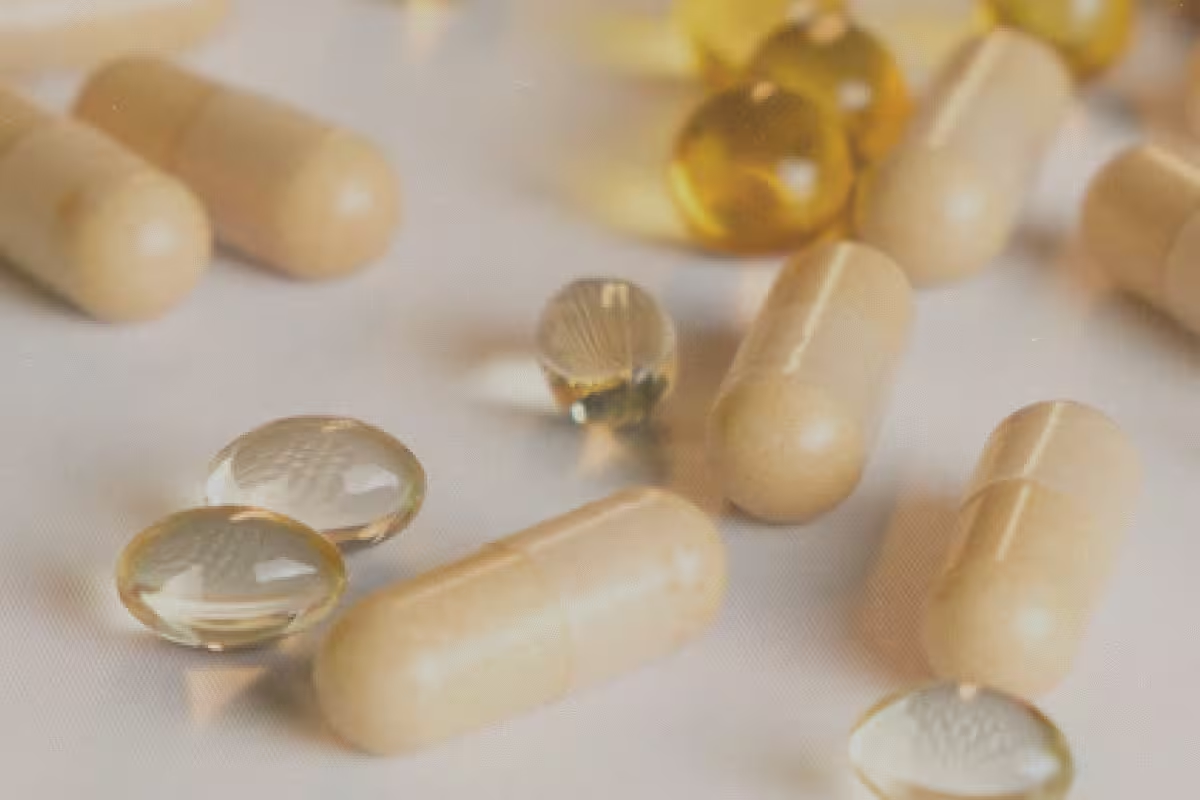

Gut Microbiome: What Is It and Why It Matters
Our Senior Scientist introduces the gut microbiome, explains the causes of gut dysbiosis, and shares tips on keeping the gut microbiome healthy!
Words by Dr. Krystal Thomas-White, PhD
Scientifically edited by Dr. Krystal Thomas-White, PhD
Medically reviewed by Dr. Christine Vo, MD
On the surface, the gut and vagina may seem like an unlikely pair. But as we know, opposites attract, and from anal sex to the gut-vagina axis, the human gut microbiome and vaginal microbiome have more of a symbiotic relationship than you might expect.
While research about these two communities is still emerging, getting to know the lay of the land for both the gut microbiome and the vaginal microbiome is essential for getting a clear picture of these distinct microbiomes and how bacterial communities within our bodies influence each other. So without further ado, check out our guide to the gut microbiome.
What is the gut microbiome, and how does it affect our health?
The gut microbiome refers to the diverse community of microorganisms, including bacteria, viruses, fungi, and other microbes, that live in your digestive tract, particularly in the intestines. These microorganisms play a crucial role in maintaining your overall health by helping with digestion, supporting your immune system, and influencing various bodily functions.
The bacteria that live in your gut are incredibly important, and we learn more about them every day. Here are a few reasons to go ga-ga for your gut.
Digestion and nutrient absorption
Most of the food we eat is digested by the bacteria in our gut. The gut microbiome helps break down complex carbohydrates, fibers, and proteins that the body cannot digest on its own. This process produces essential nutrients, such as short-chain fatty acids (which are super important for gut health), and aids in the absorption of vitamins and minerals like B vitamins and vitamin K. If it weren’t for the bacteria in our guts, humans would starve.
In the gut, high diversity is healthy
The gut microbiome has, on average, 300-500 different species, with some people having up to 1000. For comparison, the vagina tends to have 1-5 different dominant species. This bacterial diversity is essential for promoting a healthy gut.
Immune system support
Most of your immune system is located in your gut — about 70-80% of immune cells live in the gut. The microbiome helps regulate immune responses by distinguishing between harmful pathogens and beneficial bacteria. A healthy gut microbiome plays a key role in protecting against infections and illnesses — so if your gut is healthy, then your immune system is healthy.
Vice versa, if your gut is out of balance, then most likely your immune system will be on high alert! (Researchers even suspect that the composition of one's gut microbiome at an early age determines if we get allergies or asthma.)
Diet has a huge effect on the gut microbiome composition
Whatever you eat, your bacteria eat. If your diet is rich in prebiotics (a type of dietary fiber), complex carbohydrates, and fiber, then your gut bacteria will be diverse enough to break all of those things down. If your diet is high in fat and simple sugars, then your gut bacteria will be less diverse.
To have a healthy gut, you need to eat food high in fiber and other complex molecules. This includes:
- green leafy vegetables
- unprocessed whole grains (think quinoa or chia seeds)
- beans and legumes
- alliums (like onions or leeks)
- cruciferous vegetables (like cauliflower, broccoli, and cabbage).
Simply put, eat your greens to keep your gut microbiome healthy and happy.
And much more
There is way more to know about the gut than we can cover in one single article, but another key takeaway is that when bacteria are metabolizing food in your gut, they produce small molecules that end up circulating through your bloodstream and affecting other organs in the body. In this way, the gut microbiome can affect your mood by signaling to the brain. The gut microbiome communicates with the brain through the gut-brain axis, potentially influencing mood, behavior, and mental health. A balanced microbiome has been linked to reduced anxiety, depression, and even improved cognitive function — but more research is needed to understand the link between gut health and mental health. The gut microbiome can also affect our lungs, heart, or skin. It can even affect your hormones, which has a domino effect all over the body.

Recurrent symptoms? Get Evvy's at-home vaginal microbiome test, designed by leading OB-GYNs.
What causes gut dysbiosis?
Gut dysbiosis refers to an imbalance or disruption in the composition of the gut microbiome. This occurs when the community of microorganisms in the gut becomes out of balance. Normally, the gut contains a mix of beneficial and harmful bacteria. In a healthy state, the good bacteria dominate and keep the harmful ones in check. However, in dysbiosis, this balance is disrupted, often due to factors like poor diet, antibiotic use, chronic stress, illness, or environmental factors.
When gut dysbiosis occurs, harmful bacteria may overgrow, leading to inflammation, digestive issues such as bloating or diarrhea, and a weakened immune system. It can also contribute to other health problems, such as irritable bowel syndrome (IBS), inflammatory bowel disease (IBD), weight gain, and metabolic disorders.
A whole variety of different things can cause a change in your gut microbiome (too many to cover here). But it is important to remember that your gut microbiome is resilient! Even if something dramatic changes, your gut can bounce back. Let’s look over some of the most common reasons for gut dysbiosis.
Diet
As we said above, you are what you eat! Your diet plays a huge role in determining your gut microbiome composition. A diet heavy in simple sugar, fat, and processed foods is going to lose a lot of bacterial diversity because some bacteria simply have nothing to eat.
The best thing you can do is change your diet. But a caution, altering your gut microbiome isn't always easy. At first, expect a lot of gas… yep, it is unpleasant, but only temporary. Initially, your gut microbiome might not contain all the microbes needed to break down a certain fiber or complex carbohydrates. The only bacteria that can do it are really inefficient and make gas as a byproduct. But if you stick with it, your gut microbiome will adapt, and eventually the embarrassing side effect will go away.
Antibiotics
Oral antibiotics, taken for any reason, will deplete bacteria in your gut. Again, your gut microbiome is resilient, and under most circumstances, it will bounce back to what it looked like before.
But in general, antibiotics are like a wildfire sweeping through a forest. Maybe the well-established trees will survive, but all the younger trees, flowers, and bushes will be destroyed. Hopefully, the forest is healthy, with plenty of seeds already safely underground waiting to germinate and grow into a new forest. What you don’t want is a weed or invasive species taking advantage of the clean slate and taking over. That is when real problems can arise.
So be sure to take extra good care of your diet following antibiotic treatment. Give your gut microbiome all it needs, prebiotics and probiotics, to have the healthy bacteria grow back.
Infection
Have you ever had the stomach flu? Or food poisoning? Those are bad bacteria that get into your gut microbiome and cause all sorts of problems! These types of infections do cause gut dysbiosis, but most studies show that our gut is pretty good at bouncing back once we beat the infection. Just be sure to get plenty of fluids and rest, and your gut microbiome will most likely recover with you.
But those are just three examples. We’re learning that your gut microbiome is connected to your:
- Mood
- Sleep cycles
- Exercise
- Medications
- Disorders like diabetes or depression.
How do gut bacteria affect the vaginal microbiome?
As we learn more and more about the vaginal microbiome, researchers are beginning to understand that a connection exists between the gut and the vagina.
There are three different ways the gut microbiome can have an impact on your vaginal health:
- The gut microbiome acts as a reservoir for pathogens that can disrupt your vaginal microbiome
- Poor gut health causes overall inflammation in the body, including in the vagina
- Your gut microbiome can change the levels of hormones, like estrogen, which can affect the vaginal microbiome.
What’s clear is that your microbiomes work in symbiosis, which is why Evvy developed a 3-in-1 formula to support your gut, urinary, and vaginal health. With clinically-studied probiotics and postbiotics, targeted vitamins, and patented delayed-release technology, Evvy Women’s Complete Probiotic helps promote healthy bacteria, support yeast balance, and reduce bloating with just one daily capsule. Because, after all, women’s health isn’t siloed, so probiotics shouldn’t be either.
How do I keep my gut microbiome healthy?
The advice for keeping a healthy gut isn't sexy, but the same thing that doctors have been preaching forever:
- Eat your greens: And other complex, unprocessed foods. Remember, we said that most of the food you eat doesn’t feed you, but it feeds your bacteria. The,n to have a healthy gut, you need to eat a lot of foods that your bacteria like. You can think of these things as plant fiber or complex carbohydrates. Green vegetables have them, and so do unprocessed grains (oats and quinoa) and legumes. And limit your intake of processed foods or artificial sweeteners.
- Drink plenty of water: Yep, you need water to survive, and so do your microbes. Water also provides essential minerals and micronutrients. It looks like the source of your drinking water might be an essential part of your microbiome makeup. So stay hydrated!
- Get plenty of rest: Believe it or not, sleep affects your gut microbiome too. Have you ever had an upset stomach after being jet-lagged? That is the lack of sleep affecting your gut microbiome!
Like the vaginal microbiome, everyone’s gut microbiome is unique. And while there is general guidance around practicing protective habits for your gut microbiome, ultimately taking care of your gut means listening to your body and doing what makes you feel good. If you’re having recurring gut issues, talk to your doctor about testing you can do to try and figure out the composition of microbes living in your gut.
Understanding what your microbial community is made of can go a long way toward creating informed and targeted care pathways for your gut health.
FAQ
What is the gut microbiome?
The gut microbiome is a diverse community of microorganisms, such as bacteria, viruses, and fungi, that reside in your digestive system. Despite being microscopic, these gut microbes play a crucial role in your health. They aid in the digestion of the food you consume, making it easier for your body to absorb nutrients. Additionally, they bolster your immune system by combating harmful invaders and contribute to controlling inflammation. Moreover, the gut microbiome communicates with your brain through the gut-brain axis, influencing factors such as mood, stress levels, and mental clarity. The balance of your gut microbiome can be influenced by various factors, including diet, stress, and medications like antibiotics. A healthy and balanced gut microbiome supports smooth digestion and a strong immune system, while an imbalance can lead to issues such as digestive discomfort and overall health problems.
How do I know if my gut microbiome is unhealthy?
Everyone's gut microbiome is unique and highly dynamic, so scientists are still trying to figure out what a "healthy" gut microbiome even looks like. That said, there are a few signs that could indicate that your gut health isn't in the best shape. An unhealthy gut microbiome can show up in various physical and mental symptoms. If your gut is out of balance, you might experience digestive issues like bloating, gas, diarrhea, constipation, or heartburn. You might also struggle with food intolerances, feel fatigued, or notice skin issues like acne or rashes. Recent research even suggests that your mental health could be affected, leading to anxiety, stress, or mood swings. Frequent infections or a weakened immune system could also be signs of an unhappy gut. If you've recently taken antibiotics, they can disrupt your gut flora, so it's important to take care of your gut health afterward. If you're unsure what's going on, consider talking to a healthcare provider or trying microbiome testing to get a clearer picture of your gut health.





